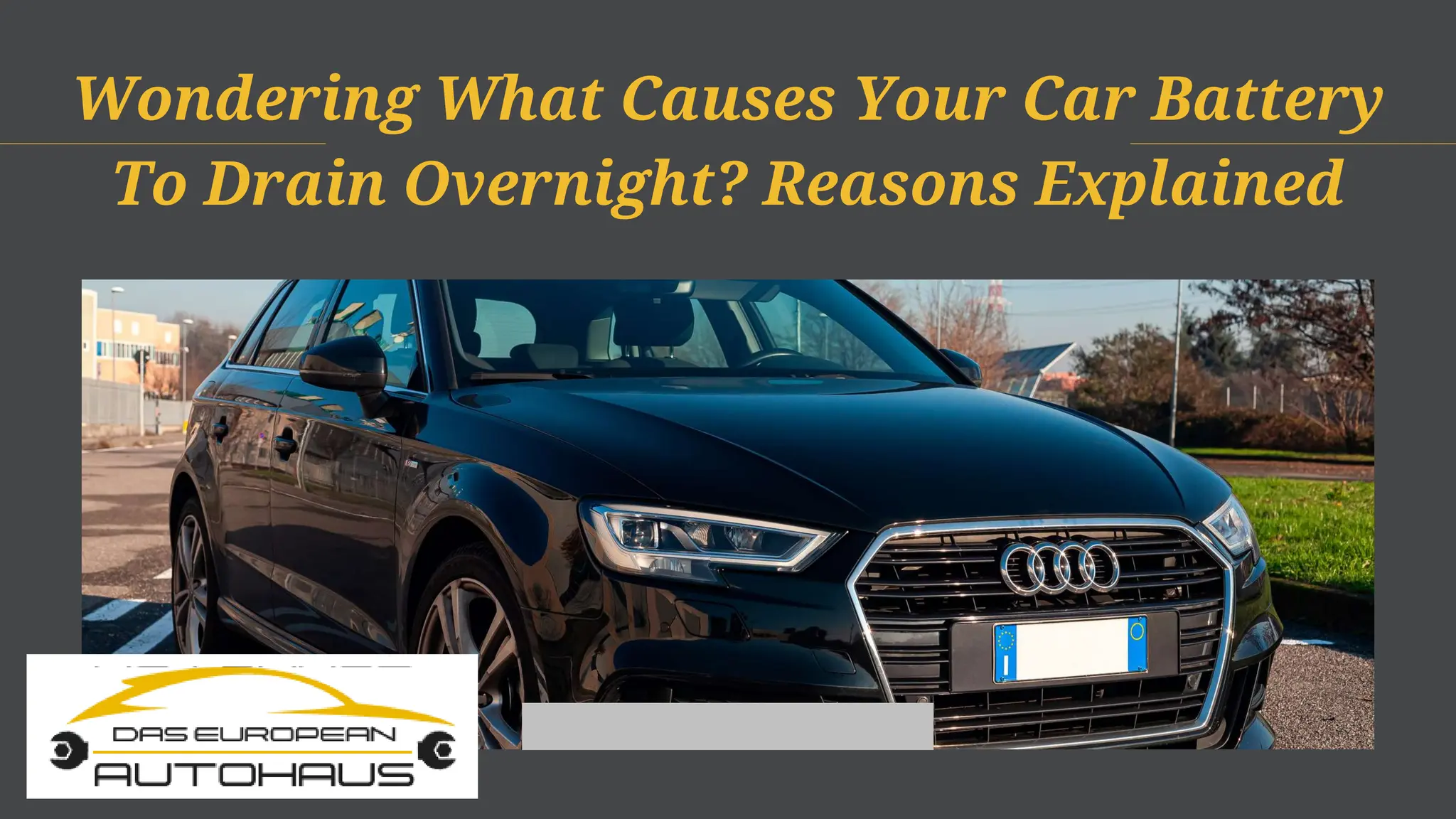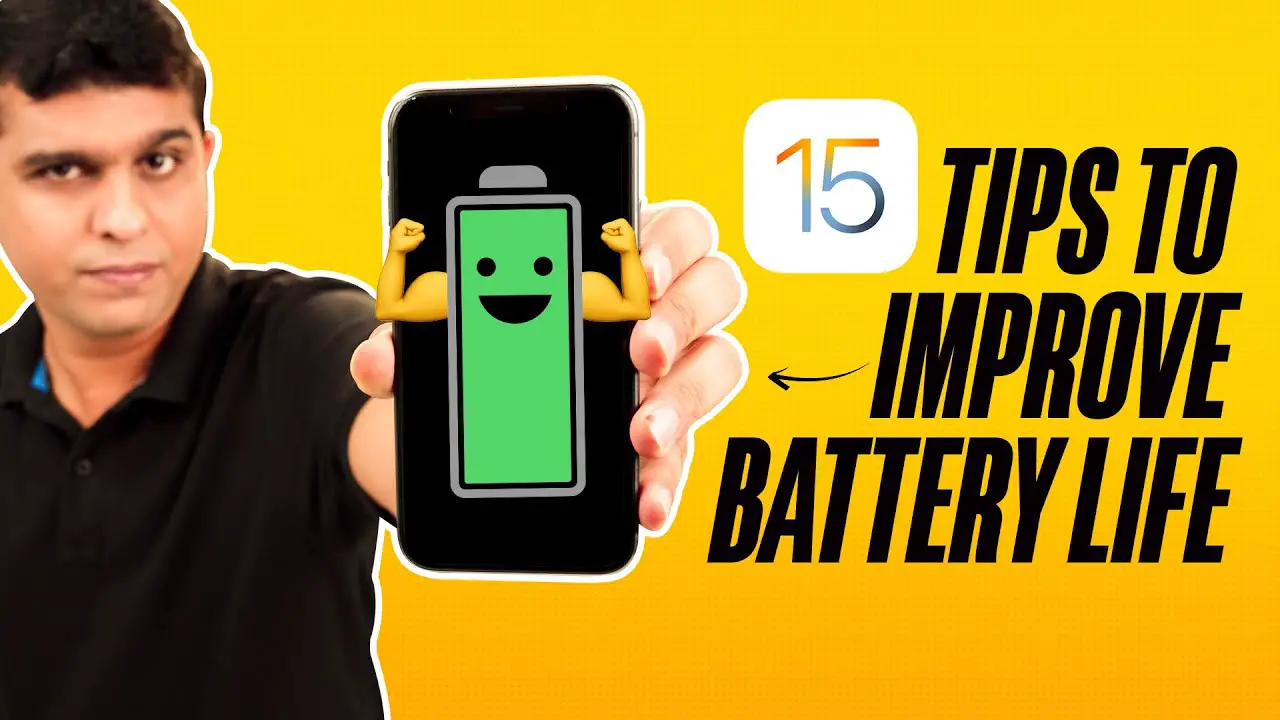Underrated Ideas Of Info About Is It Normal For A Battery To Drain Overnight

Wondering What Causes Your Car Battery To Drain Overnight Reasons
Understanding Battery Fundamentals
How Batteries Do Their Thing
At its heart, a battery takes stored chemical energy and turns it into the electrical energy your devices need. This process isn't perfectly efficient, and even when your device appears to be "off," it's often drawing a tiny bit of power. This small, constant draw keeps things like internal clocks running, remembers your settings, or allows for quick startups. So, a little bit of battery drain overnight isn't just normal, it's actually built into how these things work.
The batteries in most of our gadgets today are lithium-ion, and they have a natural tendency to lose charge on their own, even when they're not being used. This is called **self-discharge**, a natural chemical reaction happening inside the battery cells. How fast this happens can depend on how old the battery is, the temperature it's in, and its overall health.
Think of it like a bucket with a tiny, tiny hole. No matter how perfectly you fill it, a small amount of water will always drip out. Similarly, even the best batteries will experience some natural power loss. It's a basic part of how batteries function, and it's why any device left unplugged for days will eventually run out of juice, even if you never touched it.
What's more, the internal workings of many devices, even when you think they're off, maintain a very low-power state. This is what enables features like "instant on" or allows your phone to buzz with a notification even when its screen is dark. These background activities, while tiny on their own, can add up to a noticeable drain over many hours, like when you're sleeping.

What Makes Your Battery Drain Faster?
Beyond the Battery Itself
While a bit of self-discharge is just how batteries are, many other things can really speed up that overnight drain. One of the biggest culprits is **background app activity**. Lots of applications keep running processes, grabbing data, or sending notifications even when you're not actively using them. Social media, email, and navigation apps are prime examples; they're constantly talking to servers and sipping power.
How your device connects to the world also plays a big role. Leaving **Wi-Fi, Bluetooth, or cellular data enabled** — especially in spots with weak signal — forces your device to work harder to find and hold onto a connection. This constant searching and sending of signals can really eat into your battery while you're catching Zs.
The **age of your device and the health of its battery** are also super important. As batteries get older, their ability to hold a charge naturally weakens. This means they'll lose power faster. A battery that's been through many charging cycles or exposed to extreme temperatures will likely show more noticeable overnight drain than a newer, healthier one. It's kind of like an old car; it just doesn't hold its fuel like it used to.
Lastly, the **environment, especially temperature**, can affect how your battery performs. Batteries tend to lose charge quicker in very cold or very hot conditions. Leaving your phone in a freezing car or direct sunlight overnight can make the drain much worse than what's typical. For batteries to perform their best, they prefer moderate temperatures.

When to Pay Closer Attention
Signs of an Unusual Drain
So, how much battery drain overnight is too much? For most modern smartphones and laptops in a low-power or idle state, losing anywhere from **1% to 5%** overnight is generally considered normal. If your device is consistently losing 10% or more of its charge while you're not using it, that might be a hint that something else is going on.
One clear sign of an unusual drain is if your device feels **unusually warm to the touch** even when it's just sitting there. This could mean a rogue background process, a hardware issue, or even something unwanted running in the background. A warm device is definitely a signal that something is working harder than it should be.
Another thing to watch out for is a **sudden and dramatic drop in battery percentage**. If your device goes from, say, 80% to 30% overnight without any clear reason, it's worth looking into. This kind of sudden drop isn't typical for a healthy battery just sitting idle.
If you've tried basic steps — like closing all apps, turning off features you don't need, and restarting your device — and the fast drain keeps happening, it's a good idea to reach out to the device manufacturer's support or a qualified technician. Sometimes, just resetting the battery's calibration or even getting a new one might be what's needed to get things back to normal.
![Can A Starter Drain Battery Overnight [Detailed Guide] Can A Starter Drain Battery Overnight [Detailed Guide]](https://www.autocarneed.com/wp-content/uploads/2022/10/Can-A-Starter-Drain-A-Battery-Overnight.jpg)
Can A Starter Drain Battery Overnight [Detailed Guide]
Making Your Battery Last Longer Overnight
Waking Up to a Fuller Charge
Luckily, there are several simple things you can do to reduce how much battery your device loses overnight, helping you wake up to a more robust charge. One of the most effective strategies is to turn on **low-power or battery-saver modes** on your devices. These modes often automatically limit background app activity, dim the screen, and cut back on non-essential features, all to save power.
**Manually closing any apps you're not using** before you head to bed is another easy yet powerful habit. While operating systems are designed to manage background processes, some apps can be quite persistent. A quick swipe up or force close can stop them from silently sipping away at your battery.
**Turning off connectivity you don't need** — especially Wi-Fi and Bluetooth if you won't be using them — can also make a big difference. If you're in an area with notoriously bad cell signal, consider switching to **airplane mode** overnight, so your device isn't constantly struggling to find a network connection.
Finally, think about **where you charge your device**. Charge it in a cool, well-ventilated spot, away from direct sunlight or anything that generates heat. Avoiding extreme temperatures while charging can help keep your battery healthy in the long run, meaning less noticeable drain over time.

Ls Swap Battery Drain At Nancy Hutchinson Blog
The Bottom Line: A Little Drain is Fine
Understanding Your Battery's Quirks
To sum it all up, a small amount of battery drain overnight is perfectly normal. It's just how modern electronics and their power sources work. Batteries aren't just sitting there doing nothing; they're constantly involved in chemical processes, even when they seem inactive.
The trick is to tell the difference between this expected, minimal drain and a much larger, unusual power loss. By understanding what affects your battery — from background apps to the temperature around you — you can better figure out if your device's behavior is typical.
Adopting smart charging habits and paying a little attention to how your device uses power can really help your battery last longer and ensure you wake up with enough charge for the day ahead. So, don't let a few percentage points of overnight drain cause you any unnecessary worry.
The next time you check your phone in the morning and see it's lost a little bit of charge, take a breath. It's likely just your device doing what it does. But if it's a huge drop, well, then it might be time to do a little investigating!

IPhone Battery Drain Overnight Solved In 5 Minutes! Automatic
Frequently Asked Questions (FAQ)
Your Battery Drain Queries Answered
Q1: Is it bad to leave my phone charging overnight?
A1: Modern smartphones have smart charging systems that prevent them from overcharging, so leaving your phone plugged in overnight is generally fine. The device will stop charging once it hits 100% and will only add a tiny bit of power to keep it full as needed. However, constantly charging overnight every single night for years might slightly speed up how fast the battery degrades in the very long run, though for most people, this effect isn't really noticeable.
Q2: Why does my new phone's battery seem to drain faster than my old one did?
A2: This can seem a bit strange, but newer phones often come with more powerful processors, brighter screens, and more demanding software features, all of which use more power. Plus, you might be using your new phone much more actively when you first get it, which naturally leads to more drain. Over time, as you settle into a routine, the battery life might seem to even out. Also, check that all background app activities are managed, as a new phone might have more apps running by default.
Q3: Should I let my battery completely die before charging it again?
A3: For today's lithium-ion batteries, it's generally better to avoid letting them completely run out of power. Draining them all the way can actually put more stress on the battery and shorten its overall lifespan. It's usually better to plug in your device when it gets down to around 20-30% and keep it topped up. This way of charging, often called **partial charging**, is better for your battery's long-term health.